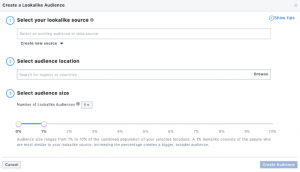A leader’s business decisions can have a profound impact on the company. It also affects customers, employees, and other stakeholders involved in keeping a business running.
This responsibility means that business leaders need to give their best efforts when it comes to managing their company.
How can they do that? It’s simple but effective: by developing their analytical skills.
Being analytical means thinking in a logical and rational manner. You use the information to find the best possible solution and use the most effective pathways to get there.
Consider these advantages of an analytical thinking process.
- When you’re analytical, you strive to gather as much information as possible
- You make informed, data-backed decisions
- Being analytics helps you identify and learn from mistakes
- You’ll be able to apply what you’ve learned to different situations
- As a leader, you’ll create the best chance for successful outcomes
The awesome news is that anyone can become more analytical. It’s a skill that you can build with practice and experience. Keen on learning what you can do to create an analytical mind? Here are some great tips to help you.
Collect Information
You can only make a rational analysis when you have all the information around a specific situation. If you want to fix the issue of increasing churn rates on your membership site or why your email list isn’t converting, you need to start with data.
A few ways to collect information is by asking your customers directly. You can build a customer survey form to get feedback from your customers on what they need and how you can serve them better.
Also, adding tools like Google Analytics will show you how people behave on your site and with your email list. Open rates, clicks, and conversion rates will guide you towards the changes you need to make and will offer you great ideas on what’s not working.
Question Your Assumptions
One of the biggest mistakes that any leader can make is to base their decisions on untested assumptions. Markets, technologies, and customer expectations change over time. What worked a year or even a month ago may not be relevant at the present moment.
It’s important to question what you know, to stay updated with the latest news in your field, and to talk to customers.
Gathering information and constantly questioning whether your assumptions are true will keep you on your toes.
Broaden Your Knowledge
It’s not possible to have an analytical and critical mindset without committing to a life-long journey of learning. The foundation of critical thinking is knowledge because it’s only when you have sufficient information that you’re capable of informed decision making.
What can you do to keep building your knowledge? Here’s a list of options for learning.
Read books: There are books on virtually any topic you can think of. Consider reading or listening to audiobooks to learn about subjects that can boost your analytical skills.
Listen to podcasts: The time you spend driving, commuting, or doing busy work can be optimized by listening to podcasts.
Do online courses: One of the best ways to pick up new skills or learn about different subjects is to do an online course. There are a number of platforms that you can access on mobile or on desktops for your convenience.
Study everything: This piece of advice is critical. Don’t just learn about things that are directly related to your business or industry. Keep an open mind and pick up knowledge from a varied range of subjects like History, Classical Literature, Language, or Psychology. Explore fiction and non-fiction. The more contexts you can imagine the broader will be your understanding and approach to difficult problems.
Learning different things will help you in surprising ways. You may build leadership skills and learn from other people’s mistakes. But most importantly, you’ll develop a critical mind from gaining knowledge about varied topics.
Develop Your Reasoning Skills
Being aware of and applying reasoning skills will allow you to think in a critical manner. Think Sherlock Holmes but applied to business. Here’s a brief look at two of the best-known forms of reasoning. Consider expanding your knowledge on this subject to be more effective at reading data.
Deductive reasoning: This is where you come to a logical conclusion based on one or more statements. Deductive reasoning is likely something you’re familiar with since you already use data to come to conclusions.
Inductive reasoning: Here, you apply broad generalizations from specific observations. There’s room for errors in the outcomes and this type of reasoning is useful in forecasting and making business predictions.
This is a short glimpse of what reasoning skills may consist of. Being knowledgeable about this will help you approach problem-solving from different directions. You’ll also be able to watch for errors in your thinking process.
Ask for a Third-Party Viewpoint
The saying ‘Can’t see the woods for the trees’ is true for leaders who have spent a significant amount of time grappling with a problem. You may be unable to see key details that are evident to people who are away from your project or situation.
Bringing in another person to look over your problem can help you see through fresh eyes. You’ll get new insights that can shift how you approach any issue you face.
What about developing another viewpoint in your own mind? A great way to do this is to use Edward de Bono’s Six Thinking Hats strategy. It’s a helpful thinking technique from the 1980s that’s still applicable to solving business problems.
Develop Your Communication Skills
Being able to communicate contributes to good analytical skills. You need to be able to share what you’ve found to stakeholders and help them understand your business’s current situation based on data.
You need to showcase your analytical skills while giving presentations and answering questions. It will also impact your reports, your teaching skills, and your ability to solve day-to-day and long term problems.
Conclusion
One of the most important skills a leader can develop is that of analytical thinking. Being able to think critically often involves other essential habits and skills, such as learning and communicating effectively.
You can build your analytical thinking skills by working on them and learning from mistakes. We’ve now gone through several ways to become more analytical. Keep applying them in life and you’ll be sure to improve and make better decisions that grow your business.
Business & Finance Articles on Business 2 Community
(149)






